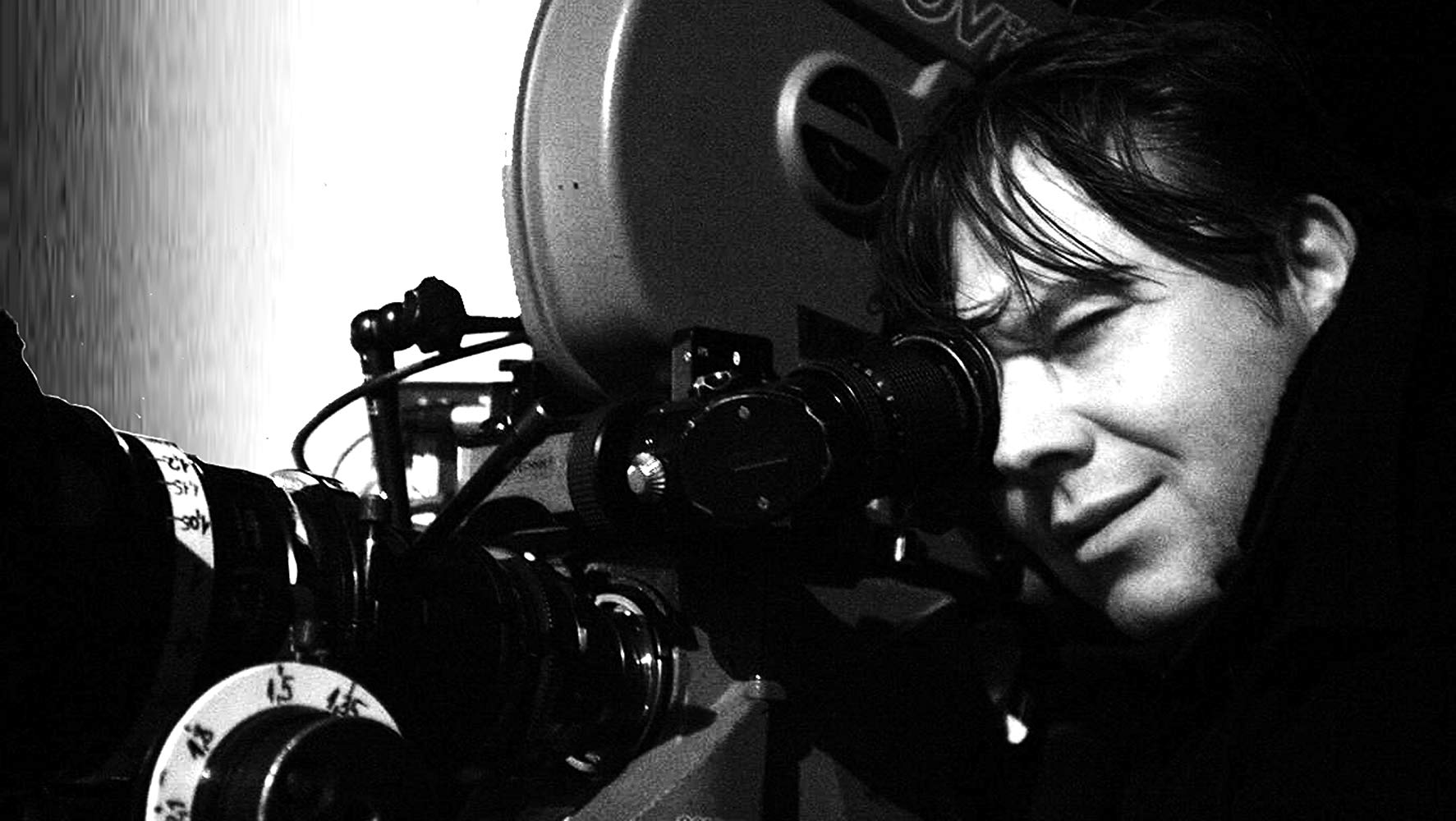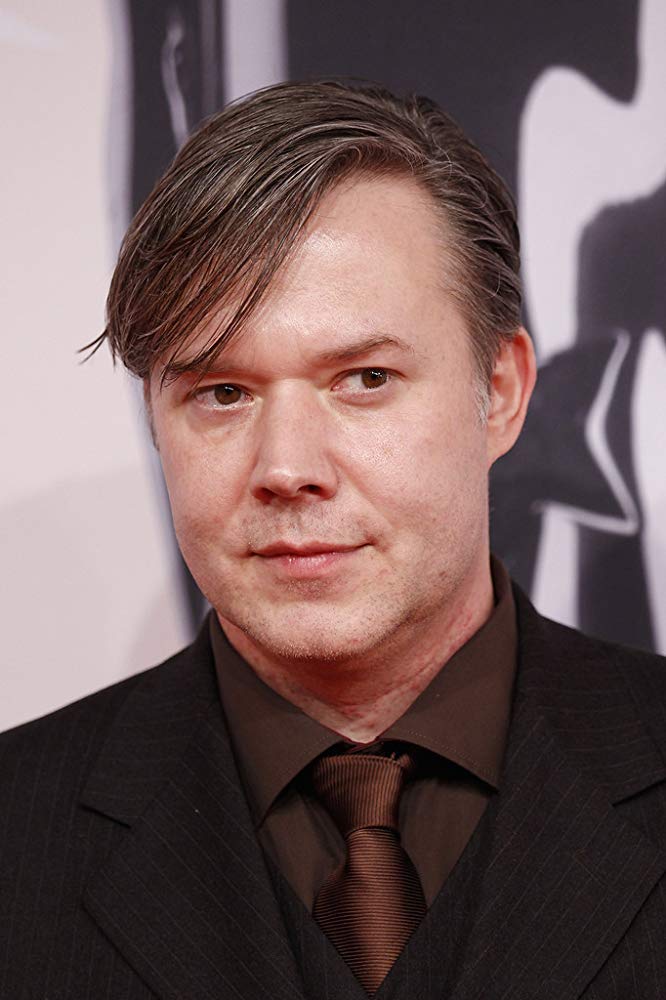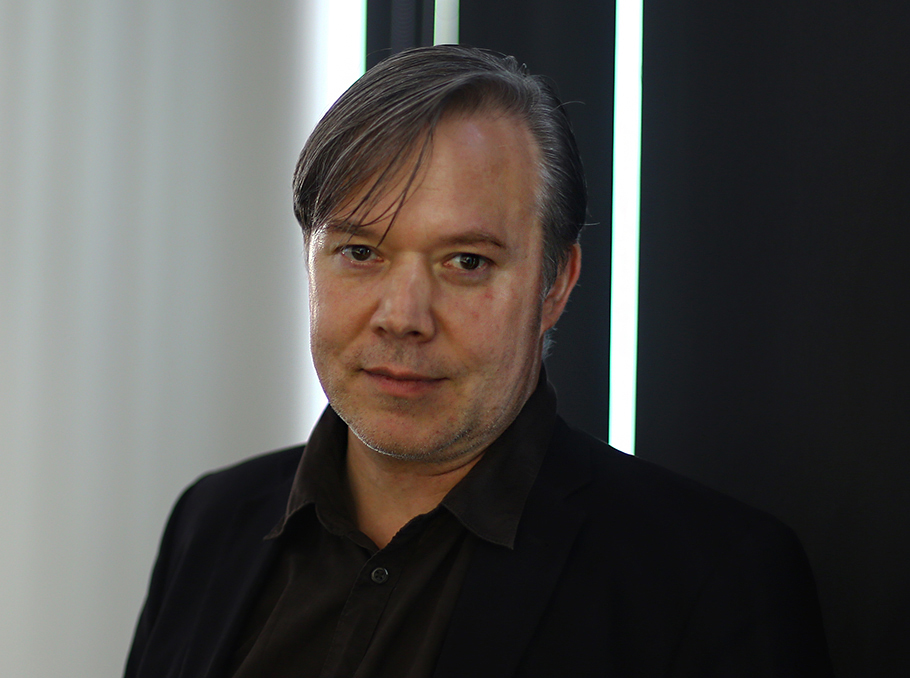
Fred Kelemen
Birthday: January 6, 1964 in Berlin, Germany
Born in Berlin (West), Fred Kelemen studied painting, music, philosophy, science of religions and theatre sciences and worked in different theatres as a director's assistant before he began his s ...Show More

I think in Germany it is getting worse because there are only a few distributors who handle films wh Show more
I think in Germany it is getting worse because there are only a few distributors who handle films which are not strictly commercially orientated, and some of them are giving up or are being bought by big companies who then turn them into a department for art films. But these art films are not the same art films that were distributed before. Jim Jarmusch is an art film for them, and for me it is not an art film any more, for example. I think he is much more commercial than the films which they were dealing with before they got bought up. These art films they show are already accepted in the commercial market, and not much different from it - just smaller budgets. They don't have a different form, for example, or difficult subjects. (...) I think the situation that I have described is very bad and very difficult, but I think it would be worse if filmmakers gave up. So, this comes back to your first question, if I was a pessimist, I would give up immediately, because the situation is so horrifying and depressing that any normal reasonable person would give up and not start making films. So that is why I think it is a very optimistic attitude to make a film which is not just commercially orientated. I think it is worth doing because film is a very young art, just 100 years old, and it would be so sad if it would die so young. I think it is the most beautiful thing that this century has invented. It shouldn't be given up and thrown away or lost to the industry or to something like the market or the capitalist ideal. [1999] Hide
I think our world is cruel. [1999]
I think our world is cruel. [1999]
I think film can never change anything, but the film can focus somebody's view on some special probl Show more
I think film can never change anything, but the film can focus somebody's view on some special problems or points, and a starting point for thought, for reflection. But a film can never change anything. The person themself has to change, the change has to come from inside. [1999] Hide
For me there is a very strong difference between hope and vision, for example, hope is something you Show more
For me there is a very strong difference between hope and vision, for example, hope is something you wait for. While you hope you are waiting - you are sure it will come, so you wait and wait and wait, but you don't do anything while you are waiting. I think in our society, when you look at culture, the arts or television or the theatre, music and so on, there is really an ideology of hope. People are forced to hope, to be happy and not to give up their belief that something really good, but it is a way of exploiting people, a way of making keeping people down and making them tolerate misery. But I think that exactly the opposite is what we need. Not to wait until something will happen, but to make it happen. And to me that's why the idea of having a vision is much more active. Hope is something very passive. So when you have a vision you fight for it and you are willing to do something for it. When somebody is really starting to do something, fight for what he wants to be real, then, maybe, hope is something that comes out of this, because then I can hope that really something can change. But hope just without this very active element of fighting for a vision or dream is nothing, completely empty. [1999] Hide
[on the representation of time in his films] They kind of demand something of the audience, because Show more
[on the representation of time in his films] They kind of demand something of the audience, because mainly people are used to seeing images and actions more quickly appearing and disappearing, to follow films on the level of entertainment and information. But in the moment when you use time, duration in a different way, when it is not only entertaining anymore, and when a shot is not just as short as necessary to give a simple information, you touch a point, of course, which can be scary, because you touch the metaphysic reality of time. In mainstream cinema, time is not existing, somehow. The presence of time is avoided, you do not feel time. But when you start to make time tangible, to make time almost material, then, of course, it is a different challenge, because then you make conscious the temporality, the fragility of our lives, you somehow make present the reality of death. [2017] Hide
[on casting Abendland (1999)] ...the actors are professional, but most had no experience of film. So Show more
[on casting Abendland (1999)] ...the actors are professional, but most had no experience of film. So "Abendland" was the first feature for the main actress, Verena Jasch, but she has done a few theatre things before. (...) I don't have any fixed ideas about it. For example, the main actor, Wolfgang Michael, was for many years one of the important actors of the 'Schaubühne' theatre in Berlin. So he is a really experienced actor in theatre, but this was the first feature film he has made. I just liked him a lot. But for sure, if someone is comes from a completely different background like theatre, there are many things you have to destroy. For example, the overacting, which is very pronounced normally in theatre actors. It's hard work to reduce the acting to minimalise their gestures. [1999] Hide
The problem is that there is a lot of money but this money goes to the same films. For sure these fi Show more
The problem is that there is a lot of money but this money goes to the same films. For sure these films are very commercial and there is not so much space for films which do things differently. And that's a very sad thing for sure because I think film is a very rich art and so there must be many kinds of films because they are possible. But I think the whole film culture will die, if the money only goes to the films which are commercially orientated or are part of a very capitalist free market. That's for sure a very sad fact because a rich garden is one with many flowers, different flowers, different plants and a garden with only one plant after a time will die. [1999] Hide
I know before how much money I will have, and then I make the film which is possible with that money Show more
I know before how much money I will have, and then I make the film which is possible with that money, but on the other hand I know the film I want to make and then I look for the money to make it. I just wanted to do it this way this time [on Abendland (1999). Next time I'll do it differently. When I made Verhängnis (1994) I was very interested in shooting the whole film on video and then to transferring it to film, doing it all handheld and doing it very rough. This time I was very interested in making these very long sequences which are all done with the dolly and very smooth and I didn't want to repeat myself. In every film there are some things I want to discover. And also to tell the people I don't know if these things will work - we just have to try. It was like this for the video images in the film and the inter-cutting of close ups, it was an idea I had but I wasn't so sure it would work, but I had the feeling it would work. [1999] Hide
For many years now I've felt there's a smell of war in Europe. I was filming Verhängnis (1994) Show more
For many years now I've felt there's a smell of war in Europe. I was filming Verhängnis (1994) back in 1993 when the war in Chechnya broke out. As you can imagine, it affected my main actor, Valerij Fedorenko, an opera singer from Chechnya, very strongly. When he wades into the fountain and you see the faces of children in the water, it came from that. [1999] Hide
[on teaching] It is interesting for me because it forces me for two months (because the years I do i Show more
[on teaching] It is interesting for me because it forces me for two months (because the years I do it I am there for two months) to think very carefully about film and to be confronted with all the problems you have when you start, to rethink them again and again and again. And it helps me to avoid falling into some sort of automatism. Every problem a student has questions my own methods. It always opens my conceptions about film. And it helps me also to bring my ego down to size, because for two months a year I have to serve others, to help them, to bring out what they want to do and to help them to be strong to keep their ideas. And that's a big help to be the servant of other people's creations. [1999] Hide
I think as long as someone is doing something, and especially something as difficult as film-making, Show more
I think as long as someone is doing something, and especially something as difficult as film-making, they cannot be a pessimist. It is a very optimistic thing to make a film, because when I make a film it means I believe that there will be people there to watch the film. If I were a pessimist, I wouldn't be making films. [1999] Hide
Every film which is about human beings, human relationships and human feelings is universal and can Show more
Every film which is about human beings, human relationships and human feelings is universal and can happen anywhere in the world. But we don't live in abstract areas, we live in very concrete places - both concrete and universal at the same time. The city which is shown in Abendland (1999), for sure it is Germany, but it doesn't have to be Germany. [1999] Hide
[on Abendland (1999)] Yes, there is a lot improvisation in the film. There's a script, but in the sc Show more
[on Abendland (1999)] Yes, there is a lot improvisation in the film. There's a script, but in the script I never write dialogues. But there are some parts where it is written what the characters talk about without saying how they have to talk about it. That's something I develop with the actors. The script was written before I knew all the actors, and after knowing who will be in the film I changed a lot of things because the people who are acting in the film are a big influence on it. We sit and talk with the actors about the whole thing before we shoot. But I never make rehearsals out of the shooting or after the shooting, just the shooting day, the day of creation. So, it's really work I do together with them. Being an actor in this film is very creative thing for them. Even in the shooting I change things - I take scenes away and make new scenes because maybe I have an idea in the morning which is much better than what I had written. It would be stupid to shoot just what is written and not to change it. [1999] Hide
[on Abendland (1999)] Some of the long scenes were done in two or three days. The first day was only Show more
[on Abendland (1999)] Some of the long scenes were done in two or three days. The first day was only arranging the lighting and camera rehearsals, because there are many lamps in some scenes and because when you do a very long travelling shot, you see the whole room, you cannot just light a corner or a face and then cut, and then light another corner, the whole room is to be there, illuminated, completely ready and without any lamp in shot. The real place actually looked like it looked on the screen. It has to be done, because film is something very practical and everything you want to have on screen you have to realise before. The second day I worked with the actors, and maybe we shot it immediately if everybody was completely present or it was not too exhausting. If we had been working too long we came back the next day and shot the scene the next day. And maybe I change some little things after rehearsal, so it's really a process of creation during the shooting. It's never like here is something on the paper and then just doing it like it was written. [1999] Hide
[on the title of Sarajevo Songs of Woe (2016)] The expression "Songs of Woe" in the title of my film Show more
[on the title of Sarajevo Songs of Woe (2016)] The expression "Songs of Woe" in the title of my film is connected with two texts of the Jewish Tanakh, part of the Christian so called "Old Testament", the Bible, which are Jeremiah's "Book of Lamentations" or "Book of Woe" and "Kohelet" in Hebrew or "Ecclesiastes" in the "Old Testament". The "Book of Lamentations," which is also a book of songs, laments about and describes the situation after the destruction of Jerusalem. What my film does is to show a world after the destructions of the siege of Sarajevo. In former times, Sarajevo was called "the Jerusalem of Europe". In Sarajevo for a long time all Abrahamic religions co-existed in harmony without problems, and only after the ethnical, religious conflicts, this cultural diversity was destroyed. Now we don't have this anymore, of course. And so, somehow, I related the situation in Sarajevo with the situation after the destruction of Jerusalem. [2017] Hide
[on form as content] The form is very important, because the form transports the content, and the fo Show more
[on form as content] The form is very important, because the form transports the content, and the form is the content, so form is nothing we should not care for. It is very important to care for the form. Because the form, expressing artistic solutions you give in the film, is part of the content, and these artistic solutions are expressing the attitude and the point of view of the artist, so they're really something that is beyond the story or beyond even what we see. How something is shown is as important as what is shown, because of how it adds the metaphysical level to the film and thus makes it tangible for the audience. [2017] Hide
For me the quality of Europe is the diversity of cultures - the different languages and peoples, the Show more
For me the quality of Europe is the diversity of cultures - the different languages and peoples, the absence of homogeneity. Europe is a very heterogeneous place with different languages and backgrounds and climates, and all this diversity creates a richness which I believe is important. And then Europe has a strong background in wars. I think what unites different European cultures is the experience of pain. Which is different from, say, the United States, where a war never happened because of the invasion of a foreign force. Hide
[why he shot part of Abendland (1999) in Portugal] We were in a very old abandoned factory in east G Show more
[why he shot part of Abendland (1999) in Portugal] We were in a very old abandoned factory in east Germany while looking for shooting locations, and in one office there was an old calendar from years ago hanging on the wall and the first image on the calendar was a bridge, a very famous bridge in Portugal. I had the idea that it was a sign, let's go to Portugal. We had to go to Portugal because we found this image and we believed very strongly that this image was there and it was. It was a good decision. So we went to Portugal looking for places and we really found beautiful places in one city in Portugal in Porto in the north and we wanted very much to shoot there, since I couldn't find anywhere else. Then I tried to find a co-producer in Portugal and I found one, but before that the first idea was just going there and looking for places. [1999] Hide
Fred Kelemen's FILMOGRAPHY
as Actor (2)
 Fred Kelemen'S roles
Fred Kelemen'S roles

Agent Albrecht
















![Tarr Béla, I Used to Be a Filmmaker [Audio: Hungarian]](https://static.new-123movies.live/images/123movies/9q8TJyqmUlJJrOArzV22Oda6KepS2Jt44LbuyFbgnTs3cv9cvlkPyJivz6qX0dVknxd6Zk0aiiwuo3flmEc8GIVQbwZr0E8zTRTE4i4q8-CgQI_Zy--eclj9bn8z9hsQ.jpg)

